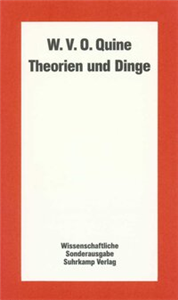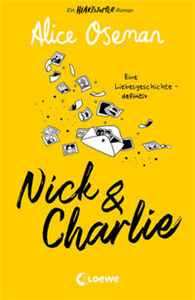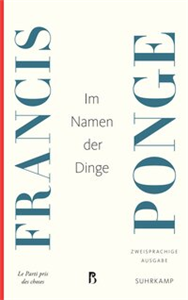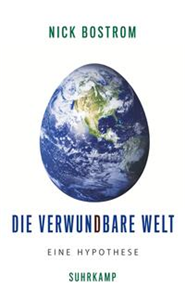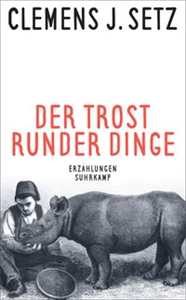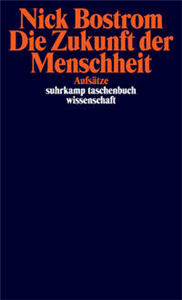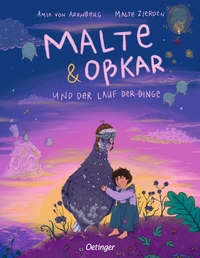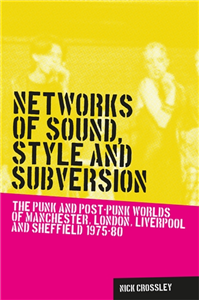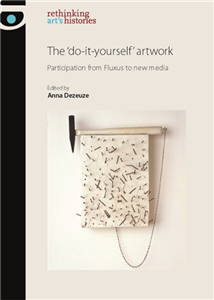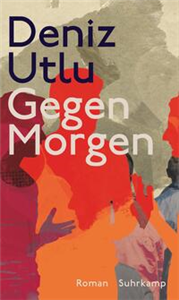Your Search Results
-
Promoted ContentOctober 1989
Theorien und Dinge
by Willard Van Orman Quine, Joachim Schulte
Quine vermag uns zu überraschen. Nicht nur, weil er die sonst vielfach trocken wirkenden Probleme von Sprachphilosophie und philosophischer Logik mit anschaulichen Formulierungen, treffenden Beispielen und verblüffenden Bildern lebendig zu machen versteht, sondern weil er überdies imstande ist, längst gesichert und abgetan geglaubten Themen neue Fragen und vor allem unvorhergesehene Antworten abzugewinnen. Neben Erörterungen technischlogischer Begründungsfragen, bei denen Quines mustergültige Klarheit und sein Verzicht auf einschüchterndes Brimborium erfrischend zu unvermuteten Einsichten verhelfen, finden sich in diesen Abhandlungen Auseinandersetzungen mit der Geschichte der Philosophie, namentlich des Empirismus, sowie kritische Darstellungen der Gedankenwelt Russells, Austins, Smarts, Goodmans, Gödels und Lewis Carrolls. Gleichsam nebenbei, doch nie als Nebensache, werden prinzipielle Probleme behandelt, etwa die Kontextabhängigkeit philosophischer Fragestellungen, und es werden ausgefallene Aspekte allgemeiner Begriffe deutlich gemacht, etwa die Rolle von Metaphern bei der Entwicklung wissenschaftlich fruchtbarer Ideen.
-
Promoted ContentJuly 2018
Vertraute Dinge, fremde Dinge
Essays
by Teju Cole, Uda Strätling
Teju Cole betrachtet Kunst, wie er die Welt betrachtet: mit dem Blick eines unsystematischen Historikers, der zunächst beobachtet, beschreibt, das Offensichtliche in den Blick nimmt, um zu dem weniger Sichtbaren vorzudringen, das darunterliegt. Seine Essays handeln von der Erfahrung des Unterwegsseins und von politischer Moral, von Rassismus und davon, warum auch ein Präsident, der die »richtigen« Bücher liest, in seinem Amt Menschen tötet. Und er schreibt über das, was ihn geistig nährt: über Baldwin, Sebald und Tranströmer; über Brasilien, Italien, Palästina; über die Ästhetik westafrikanischer Auftragsfotografie und über Instagram. In bereichernden, betörenden und originellen Essays offenbart Teju Cole den Reichtum seiner Interessen. Immer wieder zieht er erhellende Verbindungen, von der konkreten Gegenwart zur Dichtung, von der Geschichte zur Kunst. Vertraute Dinge, fremde Dinge wird zu einer Schule des Sehens.
-
 Trusted Partner
September 2006
Trusted Partner
September 2006Buch der Dinge
Gedichte
by Aleš Šteger, Urška P. Cerne, Matthias Göritz, Matthias Göritz
»Nicht für jedes Ding gibt es ein Wort«, vermeldet das Große Wörterbuch der slowenischen Sprache. Aleš Šteger, als Reisender in vielen Sprachen und Ländern zu Hause, Autor mehrerer Gedichtbände und einer Reiseprosa über Peru und César Vallejo, stellt diese Einsicht seinem neuen Lyrikband als Motto voran. Doch es fehlt nicht nur an Worten. Wie seine streng gebauten, leichtfüßigen Texte, 50 Gedichte, zeigen, haben wir schon das Selbstverständliche nie richtig kennengelernt: Büroklammer, Seife, Zahnstocher (»dieser kleine Robespierre im Maul des Polyphem «), Regenschirm, Hut und Fußmatte. In Štegers Gedichten werden sie aufgerufen und treten uns, dem Allgemeinbegriff entschlüpft, entgegen; sie stellen Fragen, die zu groß sind für so kleine Dinge. Unklare, sich verwandelnde Seinsformen wie Ei, Wurst und Schokolade machen stutzig. Das Brot offenbart seinen sadomasochistischen Charakter: »Ja, ja, es liebt dich, deshalb nimmt es jetzt dein Messer in sich auf. / Es weiß, daß sich all seine Wunden in deiner Hand verkrümeln. « – Nicht zur Benennung der Dinge fehlen uns die Worte, sondern für die Antworten, die wir ihnen schuldig sind.
-
 Trusted Partner
September 2022
Trusted Partner
September 2022Nick & Charlie (deutsche Ausgabe)
Ein Heartstopper-Roman – Eine Liebesgeschichte – definitiv. Die Geschichte von Nick & Charlie der Bestsellerautorin Alice Oseman geht weiter
by Alice Oseman, Beate Schäfer
Nick und Charlie sind das perfekte Paar. Doch kann ihre Liebe auch eine Fernbeziehung aushalten? Nick und Charlie sind einfach unzertrennlich. Aber jetzt geht Nick zur Uni und Charlie bleibt in der Oberstufe zurück. Als der Abschied näher rückt, fragen sich die beiden, ob ihre Beziehung trotz der Entfernung bestehen kann. Denn jeder weiß, dass die erste Liebe selten ewig hält ... Mit diesem Kurzroman entführt uns Alice Oseman wieder in die Welt von Nick & Charlie, deren Beziehung uns zeigt, dass Liebe in all den alltäglichen Kleinigkeiten zu finden ist und jede Distanz überbrücken kann. Für alle Fans der Graphic Novel Heartstopper und der Realverfilmung auf Netflix. Graphic Novels aus dem Heartstopper -Universum: Heartstopper Volume 1 Heartstopper Volume 2 Heartstopper Volume 3 Heartstopper Volume 4 Heartstopper Volume 5 Heartstopper Volume 6 - folgt Romane aus dem Heartstopper -Universum: Nick & Charlie This Winter Weitere Jugendbuchromane von Alice Oseman bei Loewe: Loveless Nothing Left for Us (die deutsche Übersetzung von Radio Silence ) Solitaire I was Born for This
-
 Trusted Partner
October 2017
Trusted Partner
October 2017Im Namen der Dinge
Zweisprachige Ausgabe
by Francis Ponge, Gerd Henninger
Die Dingwelt selbst zum Sprechen bringen: Ob Kieselstein, Garnele, Schmetterling oder Auster – Ponges Maxime ist es, die Gedanken und Meinungen des Dichters hinter den Gegenständen zum Verschwinden zu bringen, um deren eigentliches Wesen sichtbar zu machen. So heißt es über die Kerze: »Manchmal entzündet sich in der Nacht eine seltsame Pflanze, deren Schein die möblierten Zimmer in Schattenmassive zerteilt. Ihr Goldblatt steht in der Höhlung eines Alabastersäulchens reglos an tiefschwarzem Stiel.« Ponge beschreibt die Dinge nicht, er überführt sie in eine sprachliche Form, um sie dort erst zum Leben zu erwecken. Jean-Paul Sartre verfasste 1944, von Ponge inspiriert, den Essay Der und Mensch und die Dinge und verhalf dem Dichter so zu großer Bekanntheit. Der französische Titel Le Parti pris des choses lässt sich auch als »Parteinahme für die Dinge« verstehen. Unter dem Eindruck der Weltkriege und der einhergehenden Instrumentalisierung der Sprache macht es sich Ponge zum verbindlichen Prinzip, die Dinge von vorgefassten Meinungen zu befreien und mit den Mitteln der Sprache zu deren Eigenleben vorzudringen. Mit seiner Dichtung ebnete Ponge den Weg für die großen sprachkritischen Theorien von Roland Barthes bis Jacques Derrida. In Deutschland zeigte sich vor allem Peter Handke stark beeinflusst, der Ponges Das Notizbuch vom Kiefernwald und La Mounine ins Deutsche übertrug. Francis Ponge gilt als einer der angesehensten Dichter im Frankreich der Nachkriegsjahre und erhielt für sein Werk zahlreiche Preise.
-
 Trusted Partner
October 2006
Trusted Partner
October 2006Experimentalsysteme und epistemische Dinge
Eine Geschichte der Proteinsynthese im Reagenzglas
by Hans-Jörg Rheinberger
Dieses Buch ist binnen weniger Jahre zum Klassiker der modernen Wissenschaftsgeschichte geworden. Im Mittelpunkt der Untersuchung steht eine Beschreibung der materiellen Anordnungen, die Laborwissenschaftler im 20. Jahrhundert als 'Experimentalsysteme ' bezeichneten. Rheinberger entwirft eine umfassende, materialreiche wie pointierte Epistemologie des modernen Experimentierens. Die Dynamik der Forschung erweist sich dabei als Prozeß der Herausbildung 'epistemischer Dinge': Die empirischen Wissenschaften entwickeln sich in der Auseinandersetzung mit ihren Gegenständen. Dies bedeutet eine radikale Verschiebung der Perspektive weg von den Ideen und Absichten der Handelnden und hin zu den Objekten, auf die sich Handeln und Begehren richten. Es sind die Dinge, an denen die Handlungen entzifferbar werden. Hans-Jörg Rheinberger ist Direktor am Max- Planck-Institut für Wissenschaftsgeschichte in Berlin.
-
 Trusted Partner
July 2020
Trusted Partner
July 2020Die verwundbare Welt
Eine Hypothese | Klimawandel, Pandemien, Atomkrieg: Was tun, wenn die Existenz unserer gesamten Zivilisation auf dem Spiel zu stehen droht?
by Nick Bostrom, Jan-Erik Strasser
Eine Schwachstellenanalyse von einem der wichtigsten Risikoforscher der Welt. Angesichts von Klimawandel und Pandemien wächst global das Bewusstsein, dass die Welt, wie wir sie kennen, womöglich nicht ewig währt – dass die Lebenserwartung der menschlichen Zivilisation als ganzer maßgeblich von unserem Handeln abhängt. Unsere Welt ist verwundbar, ja, es sind sogar Szenarien der vollständigen Selbstzerstörung denkbar, sofern keine geeigneten Maßnahmen zu ihrer Stabilisierung ergriffen werden. Dies ist die Hypothese, die Nick Bostrom in einem vieldiskutierten Text aufstellt, der nun erstmals in deutscher Übersetzung erscheint. Bostrom geht davon aus, dass die technologische Entwicklung unweigerlich auf einen Punkt zusteuert, an dem es kritisch wird. Historisch gesehen, war das schon einmal fast der Fall, wie er mit einem atemberaubenden Gedankenexperiment illustriert, das in der Zeit des Kalten Krieges spielt. Dann entwickelt er einige nur allzu plausible Szenarien, die den Untergang der menschlichen Zivilisation mit großer Wahrscheinlichkeit herbeiführen würden – es sei denn, wir treffen rechtzeitig Gegenmaßnahmen. Welche das sein könnten, diskutiert Bostrom im zweiten Teil dieses wichtigen Buches, das mit Empfehlungen an die Politik schließt.
-
 Trusted Partner
February 1991
Trusted Partner
February 1991Theorien und Dinge
by Willard Van Orman Quine, Joachim Schulte, Willard Van Orman Quine
W. V. O. Quine war einer der wichtigsten amerikanischen Philosophen des 20. Jahrhunderts. Es gelang ihm, die vielfach trocken wirkenden Probleme der Sprachphilosophie und Logik mit anschaulichen Formulierungen, treffenden Beispielen und verblüffenden Bildern lebendig zu machen. Darüber hinaus war er imstande, längst gesichert geglaubten Themen unvorhergesehene Aspekte abzugewinnen. Theorien und Dinge gibt einen überblick über sein Denken zu Fragen der Logik, der Mathematik, der Ethik, des Empirismus und dokumentiert seine Auseinandersetzung mit Russell, Austin, Goodman, Gödel, Smart und Lewis Carroll.
-
 Trusted Partner
October 2020
Trusted Partner
October 2020Der Trost runder Dinge
Erzählungen
by Clemens J. Setz
Clemens J. Setz erzählt über das Absurde und Groteske des menschlichen Zusammenlebens. Das ganz und gar Unerwartete bricht in das Leben seiner Figuren ein. Ihr Schöpfer erzählt davon einfühlsam, fast zärtlich. Durch Falltüren gestattet er uns Blicke auf rätselhafte Erscheinungen und in geheimnisvolle Abgründe des Alltags, man stößt auf Wiedergänger und auf Sätze, die einen mit der Zunge schnalzen lassen. Der Trost runder Dinge ist ein Buch voller Irrlichter und doppelter Böden – radikal erzählt und aufregend bis ins Detail.
-
 Trusted Partner
August 2010
Trusted Partner
August 2010Der Trost der Dinge
by Daniel Miller, Frank Jakubzik
Über die moderne Welt sind viele diagnostische Mythen im Umlauf: Sie sei homogenisiert, individualisiert, und die isolierten Individuen gäben sich hemmungslos dem Konsum hin. Der englische Anthropologe Daniel Miller hat diese Mythen hinterfragt – genauer: Er hat die Bewohner einer Londoner Straße befragt. Und da die Menschen nun einmal nicht gerne über ihr Leben Auskunft geben, hat er mit ihnen über die Dinge in ihren Wohnungen gesprochen: über Simons 15000 Schallplatten, die für ihn alle emotionalen Schattierungen zum Ausdruck bringen; über den Laptop, auf dem Malcolm Unmengen von Briefen und Fotos speichert, um die Erinnerungskultur seiner Aborigines-Vorfahren aufrechtzuerhalten; über die billigen Spielfiguren aus dem Fast-food-Restaurant, mit denen Marina ihren Kindern ihre Liebe zeigt.
-
 Trusted Partner
October 2018
Trusted Partner
October 2018Die Zukunft der Menschheit
Aufsätze
by Nick Bostrom, Jan-Erik Strasser
Leben wir schon heute in der Matrix? Es stehen dramatische Zeiten bevor: In den nächsten Jahrzehnten könnten Technologien wie die Künstliche Intelligenz und die Gentechnik das Ende der Menschheit herbeiführen oder aber ein goldenes Zeitalter einläuten, das wir uns noch kaum ausmalen können. Oder leben wir etwa heute schon in der Matrix, wie der schwedische Philosoph und Bestsellerautor Nick Bostrom (Superintelligenz) in seinem berühmten Simulationsargument behauptet? In den sechs hier versammelten Aufsätzen, von denen einige bereits Klassikerstatus besitzen, wagt Bostrom einen ebenso nüchternen wie detaillierten Blick in unsere Zukunft. Manches liest sich (noch) wie Science-Fiction, könnte aber aktueller und ernster kaum sein.
-
 Trusted Partner
April 2007
Trusted Partner
April 2007Der Wandlungsleib des Dong Yuan
Die Geschichte eines malerischen Oeuvres
by Unverzagt, Christian
-
 Trusted Partner
Business, Economics & LawNovember 2024
Trusted Partner
Business, Economics & LawNovember 2024The Island Book of Records Volume II
1969-70
by Neil Storey
The second volume of this highly collectable series, covering the pivotal years of 1969-70. The Island Book of Records Volume II documents the years 1969-70, during which Island sought to build on its success with the Spencer Davis Group by seeking out new British rock talent. By the end of the period, Island was emerging as a major British label, one that could boast releases from Jethro Tull, Nick Drake, King Crimson, John and Beverley Martyn, Fairport Convention and Cat Stevens. Featuring material from recent interviews and from media interviews of the time, and including a comprehensive discography of 45s, The Island Book of Records Volume II is lavishly illustrated with gig adverts (very many at venues that no longer exist), concert tickets, flyers, international LP variants, labels, LP and 45 adverts and other ephemera collector's dream.
-
 Trusted Partner
September 2025
Trusted Partner
September 2025Malte & Oßkar und der Lauf der Dinge
by Amia von Arenberg, Malte Zierden, Oßkar, Amia von Arenberg
Erinnerungen bleiben für immer In einer Straße, inmitten von Straßen, schaukelt ein Körbchen sachte im Wind. Das Körbchen hängt an einem Band, gespannt zwischen drei ganz besonderen Freunden: Malte & Oßkar und Phia. Jeden Tag hüpft ein Brief über das Band. Und Glück. Doch als ein kleiner Unfall große Ängste weckt, beginnt für Malte und seinen Taubenfreund eine Reise in eine wahrlich wundersame Welt. Eine Welt, die leuchtet und glimmert, die wabert und flimmert. Es ist eine Welt, die von Abschieden erzählt – und vom Für-Immer-Bleiben. Eine Welt, in der schon jemand auf sie wartet. Ein poetisches Bilderbuch übers Verlieren und über die Angst davor, das Erinnern und Beisammensein. Eine Geschichte, so warm und weich wie der Trost. Malte & Oßkar und der Lauf der Dinge: Das zweite Bilderbuch von Amia von Arenberg und Malte Zierden, das sich anfühlt, wie eine wärmende Umarmung Poetisch und tiefgründig: Eine einfühlsame Bilderbuchgeschichte über Verlust und Trost für Kinder ab 5 Jahren. Emotionen bei Kindern: Das poetische Bilderbuch stupst sanft und einfühlsam Gespräche über komplexe Themen wie Traurigkeit und Verlustängste an. Trost spenden: Malte und sein bester Taubenfreund Oßkar reisen gemeinsam in die Welt der Gefühle und landen in den weichen Armen des Trosts. Fantastische Bilder-Welten: In den magischen und vielschichtigen Illustrationen von Amia von Arenberg finden Kinder und Erwachsene Geborgenheit. Freundschaft, Trost und Verlustangst bei Kindern: Eine berührende Geschichte, die in keine Schublade passt – und die deshalb genau richtig ist. Das besondere Bilderbuch von Malte Zierden und Amia von Arenberg vermittelt voller Herz und Wärme, wie kraftvoll Erinnerungen sind. Eine einfühlsame und tiefgründige Geschichte für Kinder ab 5 Jahren und alle, die sie behutsam beim Umgang mit Verlust und Verlustängsten begleiten wollen.
-
 Trusted Partner
September 2016
Trusted Partner
September 2016Mein Hirn hat seinen eigenen Kopf
Wie wir andere und uns selbst wahrnehmen
by Chang, Dong-Seon
-
 Trusted Partner
The ArtsFebruary 2015
Trusted Partner
The ArtsFebruary 2015Networks of sound, style and subversion
The punk and post–punk worlds of Manchester, London, Liverpool and Sheffield, 1975–80
by Nick Crossley, Peter Martin
This book examines the birth of punk in the UK and its transformation, within a short period of time, into post-punk. Deploying innovative concepts of 'critical mass', 'social networks' and 'music worlds', and using sophisticated techniques of 'social network analysis', it teases out the events and mechanisms involved in punk's 'micro-mobilisation', its diffusion across the UK and its transformation in certain city-based strongholds into a variety of interlocking post-punk forms. Nick Crossley offers a detailed review of prior work in this area, a rich exploration of new empirical data and a highly innovative and robust approach to the study of 'music worlds'. Written in an accessible style, this book is essential reading for anybody with an interest in either UK punk and post-punk or the impact of social networks on cultural life and the potential of social network analysis to explore this impact. ;
-
 Trusted Partner
January 2025
Trusted Partner
January 2025Tanzen ist die beste Medizin
Warum es uns gesünder, klüger und glücklicher macht
by Chang, Dong-Seon Christensen, Julia F.
-
 Trusted Partner
Non-graphic art formsMay 2012
Trusted Partner
Non-graphic art formsMay 2012The 'do-it-yourself' artwork
Participation from Fluxus to New Media
by Edited by Anna Dezeuze
Viewers of contemporary art are often invited to involve themselves actively in artworks, by entering installations, touching objects, performing instructions or clicking on interactive websites. Why have artists sought to engage spectators in these new forms of participation? In what ways does active participation affect the viewer's experience and the status of the artwork? Spanning a range of practices including kinetic art, happenings, environments, performance, installations, relational and new media art from the 1950s to the present, this critical anthology sheds light on the history and specificity of artworks that only come to life when you - the viewer - are invited to 'do it yourself.' Rather than a specialist topic in the history of twentieth- and twenty-first century art, the 'do-it-yourself' artwork raises broader issues concerning the role of the viewer in art, the status of the artwork and the socio-political relations between art and its contexts.
-
 Trusted Partner
September 2019
Trusted Partner
September 2019Gegen Morgen
Roman
by Deniz Utlu
Als Kara von Berlin nach Frankfurt fliegt, gerät das Flugzeug in ein schweres Gewitter. Im Angesicht des drohenden Absturzes scheint plötzlich Ramón wenige Reihen vor ihm zu sitzen. Ramón, der nie eingeladen war und trotzdem immer kam, der bei Kara und Karas bestem Freund Vince auf dem Sofa in der Küche übernachtete, bis er von einem Tag auf den anderen verschwand. Nach der Notlandung kehrt Kara ruhelos nach Berlin zurück, wo er sich auf die Suche nach Ramón begibt und damit auf die Spuren seiner eigenen Vergangenheit. Er findet den Verlorengeglaubten in einer Plattenbausiedlung und bietet ihm an, in Vince’ ehemaliges Zimmer zu ziehen. Dort bekommt Ramón eines Nachts Besuch von Fremden. Wenig später ist er wieder verschwunden. Dass es diesmal ein Abschied für immer sein könnte, wird Kara bewusst, als er ihm bis nach Paris folgt, dort aber nur mehr eine Stadt in Aufruhr findet. Deniz Utlu erzählt in Gegen Morgen von einer tiefen Erschütterung und fragt, was uns ausmacht: das, was wir zurückgelassen haben, oder das, was vor uns liegt. In flirrenden Bildern spürt er den Versäumnissen und Potentialen eines Lebens nach sowie der Menschlichkeit, die da beginnt, wo wir nicht auf uns selbst, sondern auf andere achten.
-
 Trusted Partner
Humanities & Social SciencesNovember 2007
Trusted Partner
Humanities & Social SciencesNovember 2007Videogame, player, text
by Edited by Barry Atkins and Tanya Krzywinska




